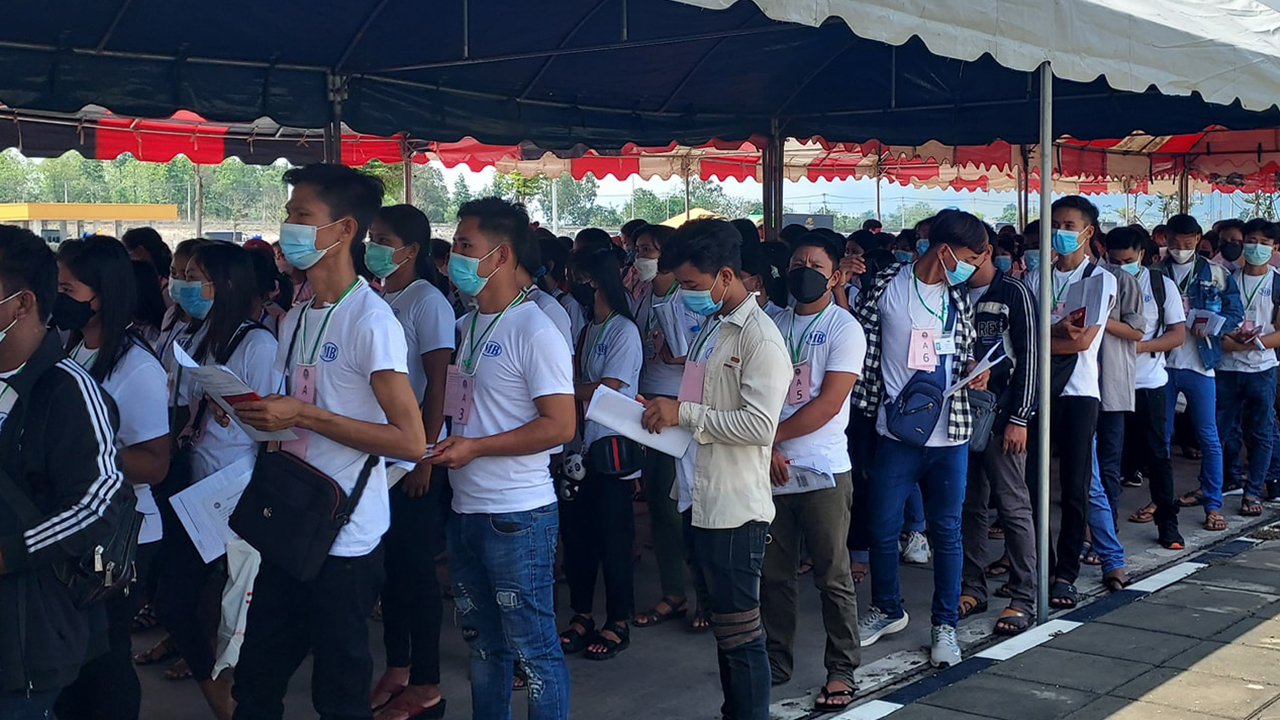CNI News
29 September 2023
The designation saying that 25 percent of basic salaries of expatriate Myanmar citizens must be transferred through legal channels to their families in Myanmar is sort of pushing remitters towards illegal remittance channels, said the people performing the affairs of migrant workers.
10 percent of income of expatriate Myanmar citizens will be collected as income tax as well as 25 percent of basic salary must be transferred to Myanmar through official channels said in the statement released by the State Administration Council (SAC).
The 25 percent must be exchanged at the price designated by the Central Bank of Myanmar without the rate of the market price, so there might be hardly anyone who will transfer to Myanmar and those who will transfer through unofficial channels may increase, pointed out businessmen and the people helping in the affairs of workers.
If the government allowed to exchange the foreign currencies that would be transferred from abroad at the market price, the workers would transfer due to lack of loss and if not so, it would be pushing Myanmar migrant workers to be illegal ones, said U Min Oo, in charge of labor affairs from Thai-based FED, to CNI News.
"The problem is the price designated by the government and exchange rate. If there is not a wide difference between the Hundi and the government's price, the workers will transfer. But now if you transfer 5,000 bahts from Thailand, your family in Myanmar will get 3,000 bahts only. So, the workers lose a lot. Myanmar workers in average get about 10,000 bahts in average. But they don't get full salary. They have to pay the tax, social security fee and others. They get 75 percent of the salary only in the end of the month. If they have to transfer about 3,000 bahts, it won't be just and fair." he said.

Myanmar citizens who will go abroad for work
The SAC should designate about 15 percent to be transferred rather than 25 percent and if it exchanges the money transferred at the market price, workers from abroad can transfer their foreign currencies to Myanmar, suggested domestic businessmen and economists.
Myanmar workers from abroad find it difficult to transfer 25 percent of their basic salaries because they have to spend money to renew their labor identity cards and relevant legal documents, not to mention monetary inflation and wages that are not raised.
The law to collect 10 percent tax from Myanmar workers abroad will come into effect on 1st October 2023 and the workers must pay foreign currency only as the tax. If a worker doesn't transfer 25 percent of his basic salary to Myanmar, he will be banned going abroad for work, warned in the statement.
" The government will not allow at the price designated by the traders. It asks workers to transfer 25 percent to Myanmar. When we went abroad, we had to pay 10 percent as the tax. But now the government has relaxed. It doesn't ask the workers to pay 10 percent as the tax. It just ask to transfer. You will get your money back. It is necessary to build the country. You must not so selfish. Not only Myanmar migrant workers but also other citizens should transfer about 25 percent to their countries. The workers might lose a bit. You might lose about 600 kyats per dollar. You don't have to split hair about it, I think." said U Thet Zaw, a economic analyst.
Because the SAC asks the workers to transfer money without ability to solve the difficulties of the workers, it is very unlikely that the workers will transfer money. Moreover, incredibility of the SAC could reduce the possibility, said Ko Thar Gyi, helping Myanmar migrant workers in Thailand, to CNI News.




